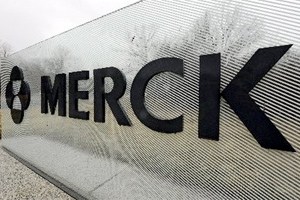 Merck & Co has embarked on a major clinical trials programme that aims to extend the uses of its melanoma therapy Keytruda into breast cancer.
Merck & Co has embarked on a major clinical trials programme that aims to extend the uses of its melanoma therapy Keytruda into breast cancer.
The company (known as MSD outside the US) will test whether PD-1 inhibitor Keytruda (pembrolizumab) can reverse resistance to Roche’s Herceptin (trastuzumab) in patients with HER2-positive breast cancer.
The phase Ib/II trial – called PANACEA – will be conducted with the assistance of the International Breast Cancer Study Group (IBCSG) and will test the combination of Keytruda and Herceptin in HER2-positive breast cancer patients whose cancer has spread despite Herceptin therapy.
“PANACEA is the first phase II immunotherapy trial not only in HER2-positive breast cancer, but in the entire breast cancer field,” said Sherene Loi of the Peter MacCallum Cancer Centre, Australia, who will chair the study.
The scientists behind the project point out that breast cancer has not been considered a particularly good option for immunotherapeutic intervention, but a growing body of evidence is starting to change that point of view.
The record for PANACEA on the clinicaltrials.gov website notes that HER2-overexpression in breast cancers is associated with higher levels of proliferation, high histologic grade and higher levels of tumour infiltrating lymphocytes (TILs) compared with HER2-negative tumours.
“The investigators therefore hypothesise that for HER2-positive tumours, avoidance of destruction by the host immune system must be an important mechanism contributing to tumour growth and progression,” it suggests.
The trial is expected to enrol around 46 patients and will generate primary outcome data in mid-2017, although with follow-up the study is not due to conclude until 2023.
First data in breast cancer
Adding to the evidence for the breast cancer programme, Merck has also reported preliminary data from a phase Ib trial of Keytruda in patients with triple-negative breast cancer, an aggressive form of the disease.
Merck’s drug achieved a response in five of 27 (18.5%) patients enrolled in the study, with the mediation duration of response not reached despite three of the five responders being on therapy for 11 months or more. The data will be presented at this week’s San Antonio Breast Cancer Symposium (SABCS).
Bristol-Myers Squibb (BMS) is also testing its rival PD-1 inhibitor Opdivo (nivolumab) in HER-2 negative metastatic breast cancer in combination with Celgene’s Abraxane (albumin-bound paclitaxel).




